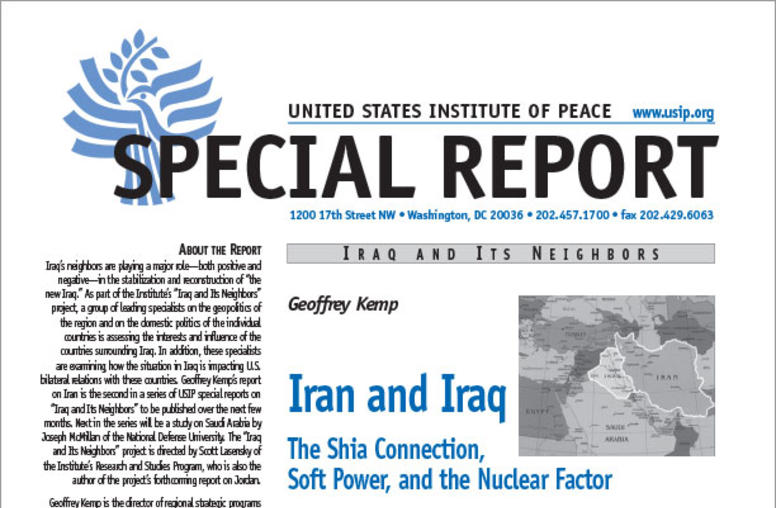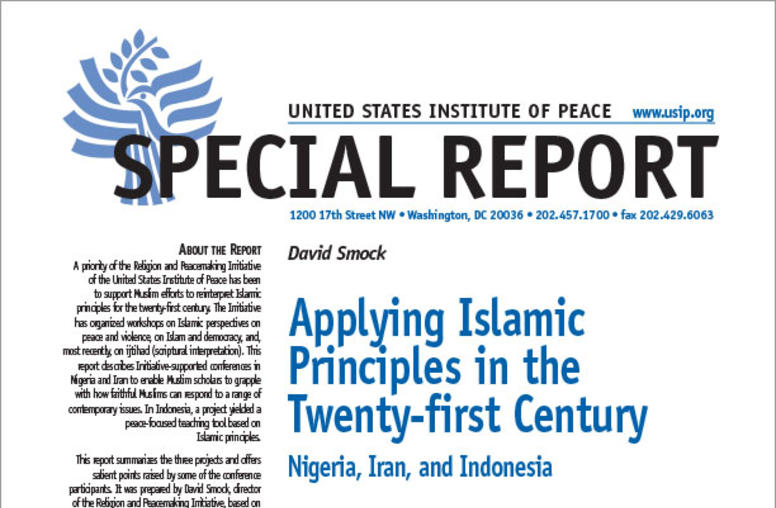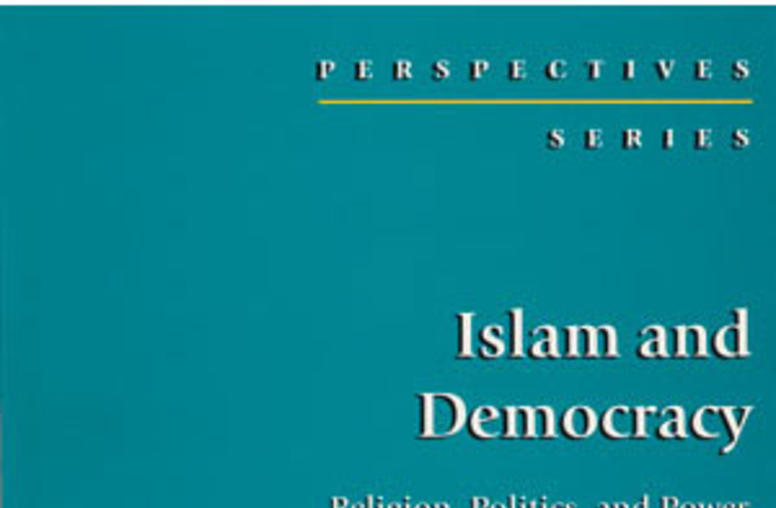Publications
Articles, publications, books, tools and multimedia features from the U.S. Institute of Peace provide the latest news, analysis, research findings, practitioner guides and reports, all related to the conflict zones and issues that are at the center of the Institute’s work to prevent and reduce violent conflict.
The Crisis in Interfaith Relations in the Middle East
The interfaith peace movement in the Middle East has foundered recently, a casualty of major geo-political events, among them the war in Iraq, the increase in hostility between Iran and the West, the Israel-Hezbollah war, and the failure of efforts to resolve the Israeli-Palestinian conflict. These and related factors have contributed to undermine interfaith efforts and limit opportunities for meaningful dialogue and common action.
Understanding the Iran-Hezbollah Connection
The aftermath of the UN Security Council resolution calling for a ceasefire of the recent conflict between Israel and Hezbollah has shifted the balance of power in the Middle East, affecting the regional Shiite-Sunni dynamic and intensifying international focus on Iran.

Iran and Iraq: The Shia Connection, Soft Power, and the Nuclear Factor
Summary Predominantly Shiite Iran emerges from the aftermath of Saddam Hussein's fall with considerable power and influence in Iraq as Iraqis themselves struggle to acquire a semblance of unity and forge a new political order acceptable to Iraq's three key groups: Shia, Kurds, and Sunnis. Iran's leaders meet with Iraq's most influential personality, Grand Ayatollah Ali al-Sistani; American diplomats do not meet with Sistani. Iraq's new elected leaders make visits to Tehran and negotia...
A Critical Triangle: Iraq, Iran and the United States
USIPeace Briefing discussing the challenges posed to the U.S. as a result of the close relationship between Iraq and Iran.

Applying Islamic Principles in the Twenty-first Century: Nigeria, Iran, and Indonesia
This report summarizes the three projects and offers salient points raised by some of the conference participants. It was prepared by David Smock, director of the Religion and Peacemaking program, based on papers by Radwan Masmudi, Asna Husin, and Abdulaziz Sachedina.

Islam and Democracy
Religion, Politics, and Power in the Middle East